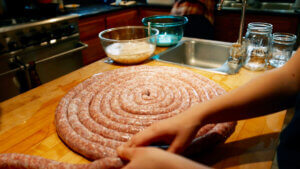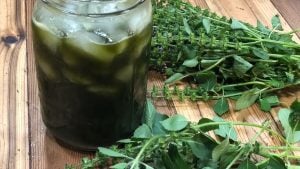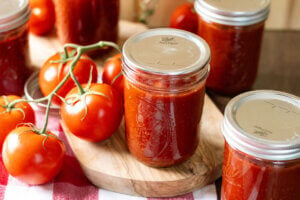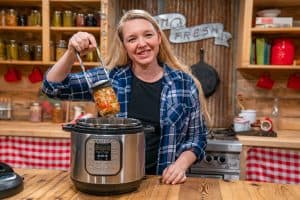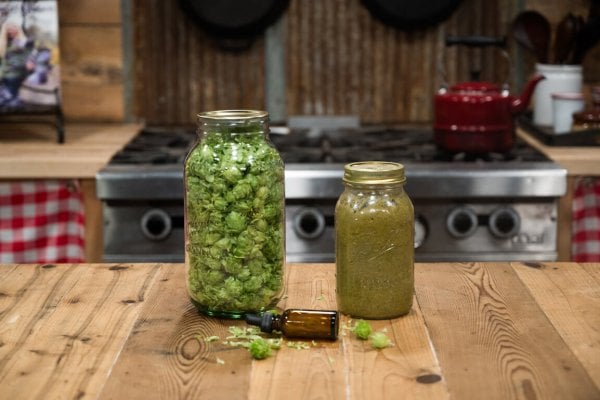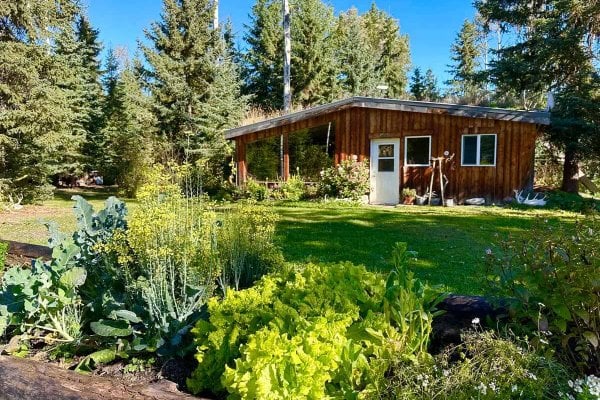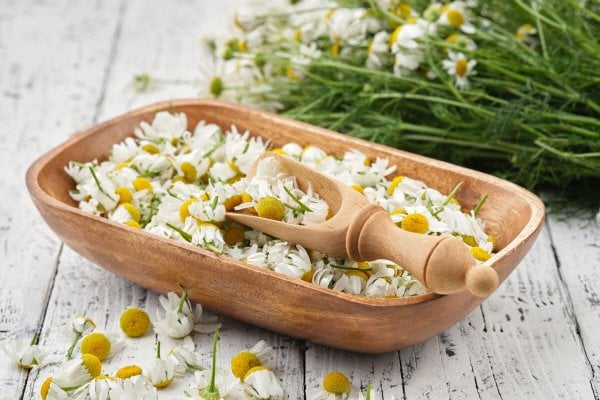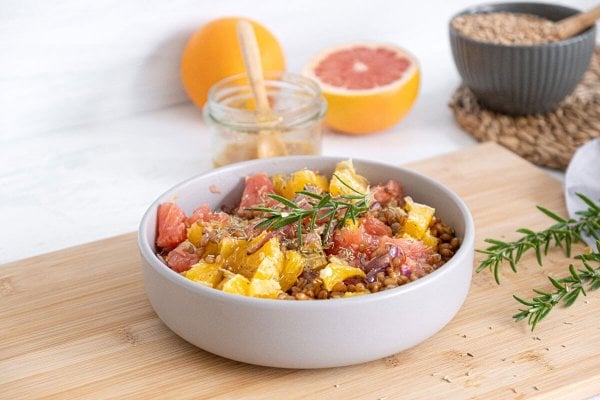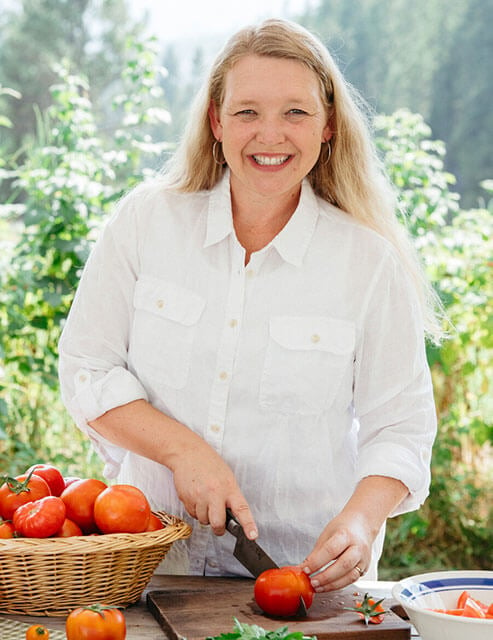



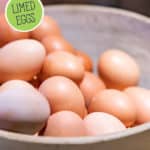
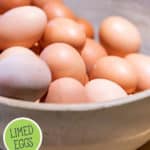

Learn how to preserve fresh eggs by water-glassing eggs for easy, long-term storage. You can cook and eat water-glassed eggs just like fresh eggs, and the taste and texture are nearly identical.
Funny enough, water-glassing eggs is probably how many of you found Homesteading Family! The below video continues to be one of our most viewed YouTube videos to date.
Water glassing is an easy and affordable way to preserve eggs at home. In this guide, I’ll walk you through the process step-by-step so that you can safely and effectively water glass eggs in your own kitchen. With a little bit of effort, you can enjoy farm-fresh eggs, even when your hens stop laying.
Why You’ll Love Water Glassing Eggs

If you’ve raised backyard chickens for any amount of time, you know their production picks up significantly in the spring as the daylight hours increase.
Because we allow our chickens to slow their production over the winter (as is natural for chickens), we like to preserve our extra eggs in the spring to last through the slower winter months. Here’s why you’ll love the water-glassing method.
- Extended Shelf Life - When you know how to store farm-fresh eggs, they can last quite a while on the shelf, but they won’t last indefinitely (or anywhere near a year). Water-glassed eggs will last up to 18 months with no refrigeration required.
- Texture and Flavor - While freezing raw eggs is great for using in recipes, it does change the texture when using them for scrambled eggs, quiche, or bacon frittata. Water glassed eggs taste just like a fresh egg with a near identical texture.
- Simple Equipment - While I love freeze drying eggs, I recognize that not everyone has access to a home freeze dryer. Water-glassing requires no special equipment. You can use anything from a five-gallon bucket to a quart-sized canning jar.
- Minimal Ingredients - If you’re reading this, chances are you have plenty of eggs. The only other ingredient you need is food-grade hydrated lime with no additives or preservatives. You may find hydrated lime under these common names: calcium hydroxide, pickling lime, or slack lime. If you can’t find hydrated lime locally, you can find pickling lime here.
Looking for even more methods for preserving your extra eggs? Check out our Egg Preservation Class!
Water Glassing Store-Bought Eggs vs. Farm Fresh Eggs
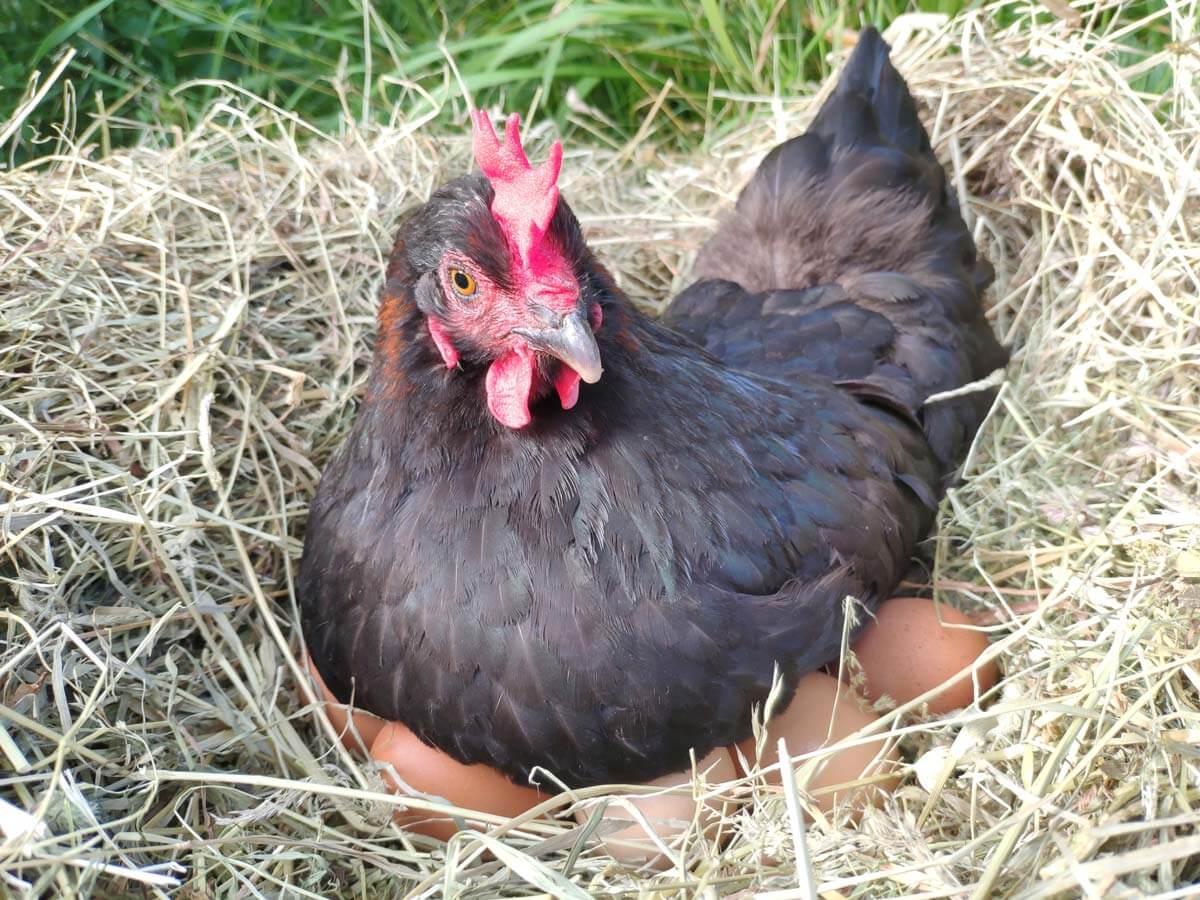
When it comes to water-glassing eggs, you may be wondering if you can use both store-bought eggs and farm-fresh eggs. The short answer is no; you should not water glass store-bought eggs.
Store-bought eggs are often washed, which removes the protective layer on the eggshell, making them more susceptible to bacteria. Farm-fresh eggs, on the other hand, are typically unwashed, and their natural protective coating remains intact. This additional protection minimizes the risk of bacterial infection during the preservation process.
Additionally, store-bought eggs may have been sitting in a warehouse or on a store shelf for an extended period before you purchase them. This may affect the quality of the egg and its ability to be preserved successfully. Farm-fresh eggs, on the other hand, are typically much fresher and unwashed, increasing the likelihood of successful preservation.
Do Water Glassed Eggs Taste Different?
In my experience, water-glassed eggs have a slightly different taste and texture than fresh eggs, but that’s not necessarily a bad thing. In the above video, I give a 12-month update on water-glassed eggs, comparing them side by side with fresh eggs.
The only difference I found is that the white gets a little bit cloudy, and the yolk is a little “flatter.” Water-glassing eggs can result in a slightly firmer texture once cooked and a more intense flavor. Some people describe the taste as richer and more savory.
However, the difference in taste is subtle and may not be noticeable to everyone. I tested this by scrambling some water-glassed eggs alongside some fresh eggs, only adding salt, and did a blind taste test with Josh. He couldn’t tell the difference!
If you’re not sure whether water glassed eggs are right for you, try preserving just a few eggs and see how you like the taste. You can test them after a month or two.
It’s worth noting that the taste of water glassed eggs can also vary depending on the storage conditions. If the eggs are stored improperly, they may develop a sulfuric taste and odor.
| Fresh Eggs | Water Glassed Eggs |
| Soft and tender texture when cooked | Firmer texture when cooked |
| Mild taste | More intense flavor |
| Short shelf life | 18 months of extended shelf life |
Supplies Needed:

- Storage Container – We like to use a combination of food-grade five-gallon buckets, gallon-sized glass canning jars, half-gallon-sized glass Mason jars, and quart-sized canning jars.
- Hydrated Lime – It’s important that you use hydrated lime (calcium hydroxide) for this recipe. Look for food-grade hydrated lime with no additives or preservatives. You may find hydrated lime under these common names: calcium hydroxide, pickling lime, or slack lime. If you can’t find hydrated lime locally, you can find pickling lime here.
- Eggs – Always start with clean, unwashed eggs. Make sure there are no cracks or damages to the shells. If the eggs are dirty, wipe them gently with a dry cloth. If they don’t come clean, it’s best to use those eggs for fresh eating and preserve only the cleanest unwashed eggs.
- Water – We recommend using filtered or distilled water for this preservation method if you’re on city water.
How to Water Glass Eggs
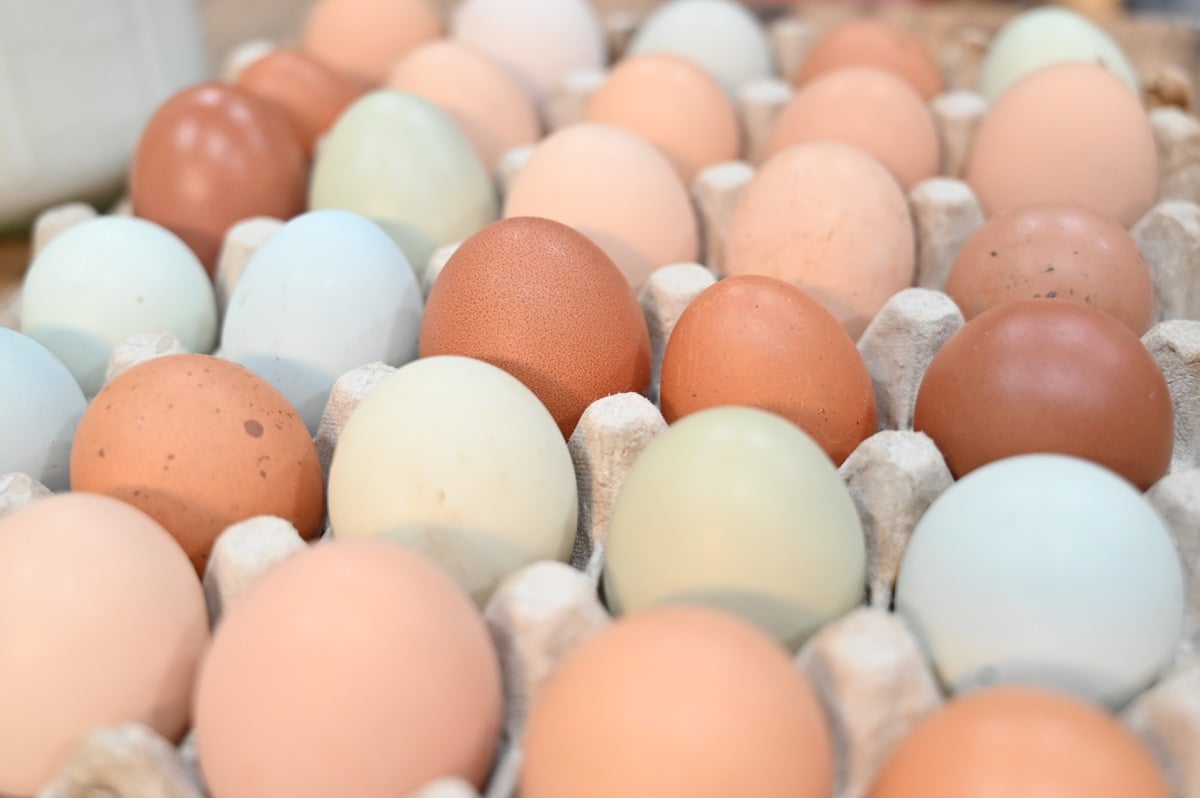
Step 1: Start with clean, unwashed eggs. Ensure the shells are free of cracks or damage.
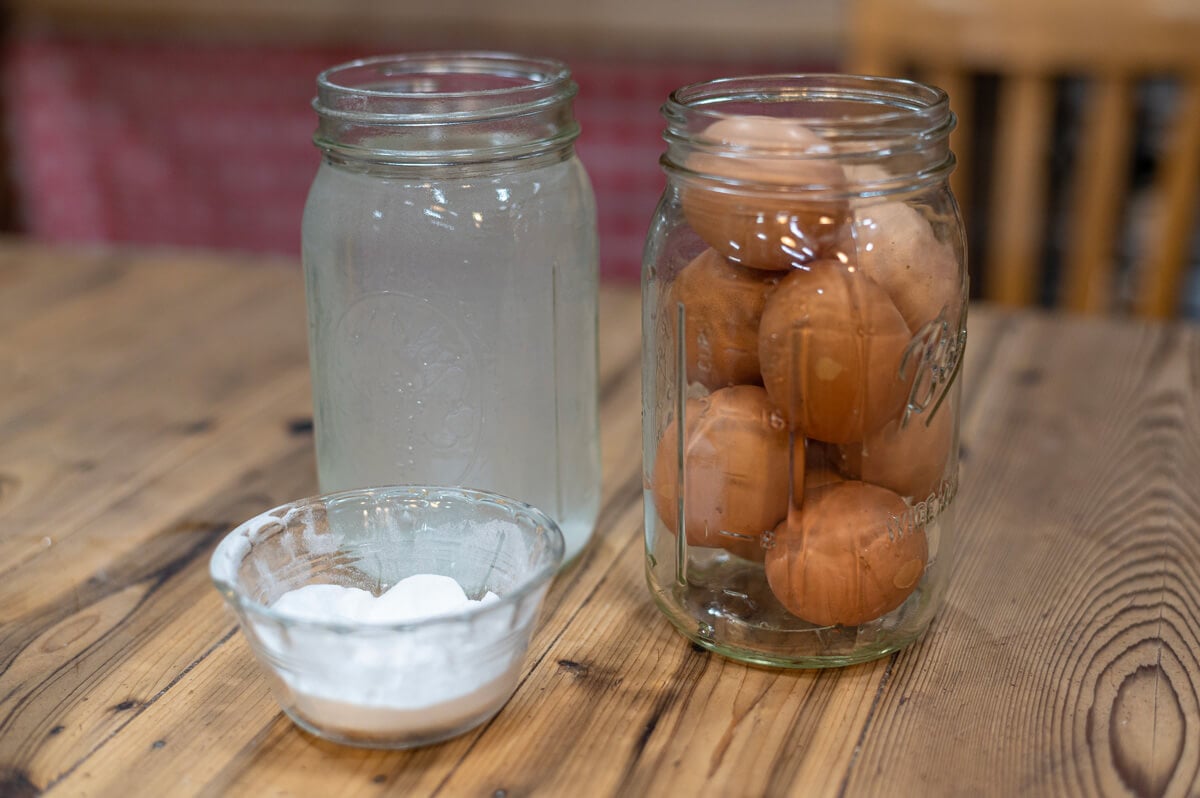
Step 2: Carefully place your eggs in the storage container. Mix one ounce of food-grade hydrated lime with one quart of cool water. (If more lime solution is needed, follow that ratio to make more.) Stir well until the lime has dissolved.
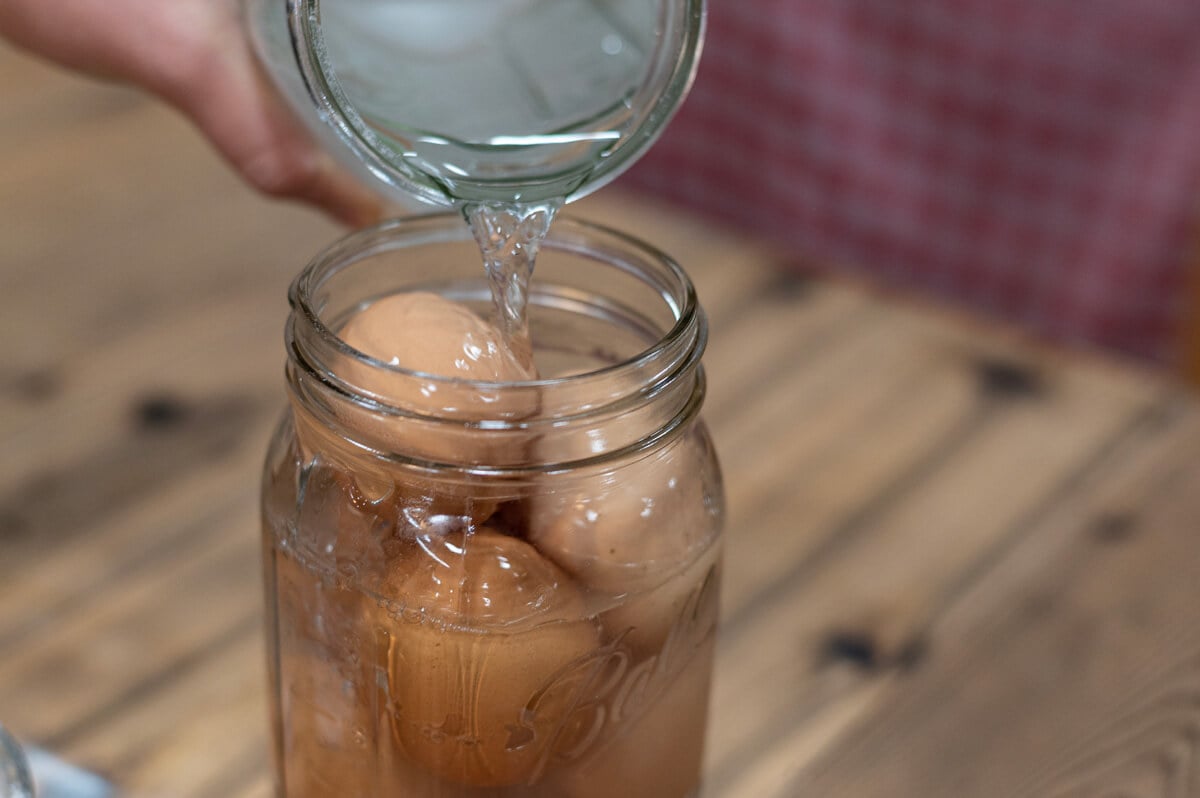
Step 3: Pour the lime-water solution over your eggs, submerging them completely. Cover the container, label with the date and store in a cool, dark place for up to 18 months.
Storage Instructions

For this method, you don’t need any special storage space, such as a cold storage, root cellar or basement. Just find the coolest part of your house away from direct sunlight, and you’ll be good to go.
Be conscious of extreme heat and/or freezing temperatures. If you’re storing eggs in a garage, for example, you’ll want to ensure they are stored in a place with pretty steady temperatures.
The biggest concern with water-glassing eggs is evaporation. You don’t want your lime water evaporating and exposing your eggs, especially if you’re storing them in the basement, where you might forget about them, so make sure they are covered.
When ready to use, take the eggs out of the solution, rinse well with water, and use as you would fresh eggs.
Water Glassing Tips
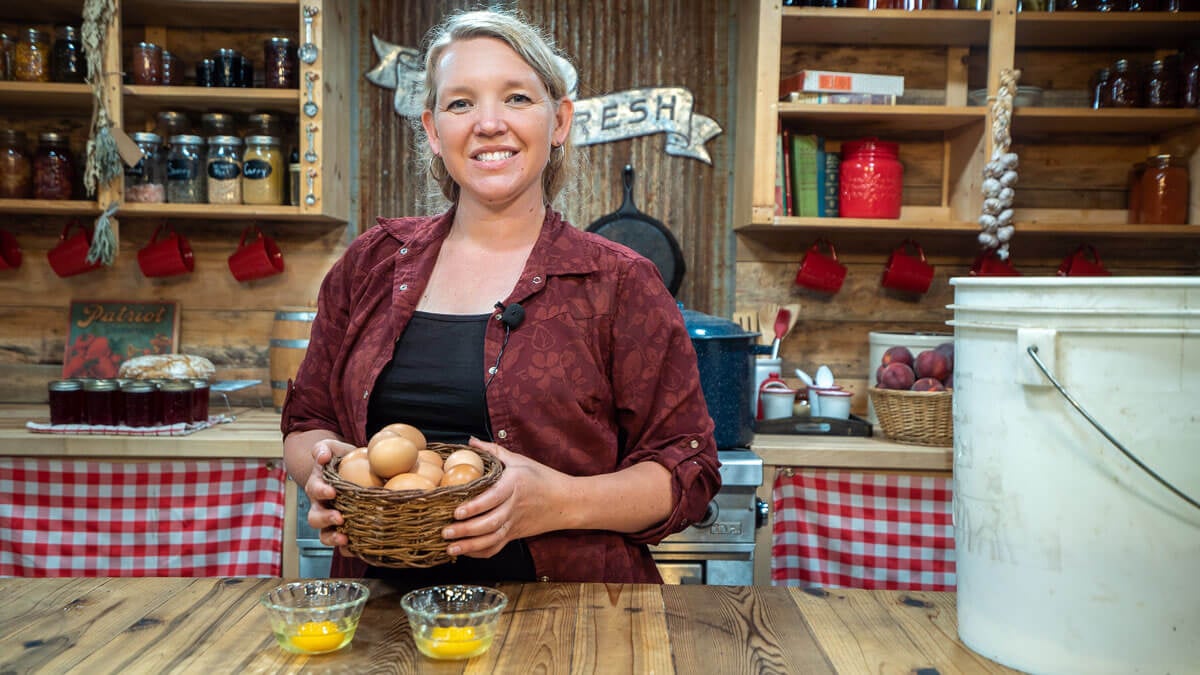
- Use Clean, Unwashed Eggs – Dirty eggs can lead to bacterial contamination, which can cause the eggs to spoil, even when preserved. I recommend collecting fresh eggs from your chickens and wiping them clean with a dry cloth. Avoid washing the eggs with water as this can remove the protective layer that naturally covers the eggshell.
- Scale as Needed: Scale this recipe up for however many eggs you want to preserve. We usually multiply by eight and use a 5-gallon bucket for a large batch.
- Place Eggs in a Cool, Dark Place – You should store water-glassed eggs in a cool environment, away from sunlight and heat sources. A pantry or root cellar is ideal for storing your preserved eggs.
- Store Eggs Upright – When storing water-glassed eggs, keep them upright with the small end facing down. This helps prevent the air pocket from expanding and allows the egg to remain fresh for longer.
- Rotate Your Stock – To ensure the longevity of your water-glassed eggs, it’s essential to use them in a timely manner. Some people like to use multiple smaller jars for this reason, to be able to label the jars with the preservation date and use the oldest eggs first.
- Keep Your Eggs Covered - If your container doesn’t have a lid, add a layer of olive oil over the top of the water, then cover it with a towel to keep any bugs or insects out.
FAQ’s
For more water-glassing FAQs, check out this video!
Water glassing is an age-old method of preserving eggs, and when done right, it can be a safe and effective way to store eggs for up to 18 months. These safety steps are crucial and are outlined in this tutorial.
Hydrated lime is usually a combination of oyster shells, bones, and limestone that have been burned in a kiln, then hydrated with water. That’s it! It’s a very natural product, not synthetic, and completely safe to use. Do note that hydrated lime will be very different than the lime you’d find in your agricultural section at the local hardware store, so be sure you’re sourcing the correct product.
Our percentage of success rate for our water-glassed eggs at eight months is 100%. Ultimately, eight months to a year is all I want to get out of this preservation method, but some people have noted that even after two years, their eggs are perfectly fine to use! I did put it to the test with a small sampling of eggs for 18 months and still had great success. We’re not looking to preserve our eggs forever, just to get us through the slump of the winter season.
Most people water-glass chicken eggs, but you can water-glass eggs from other poultry breeds such as duck, quail, goose, guinea, and turkey.
Other Posts You May Enjoy
Did you try this water glassing eggs tutorial? If so, please leave a star ⭐ rating and your comments in the recipe card below. Then snap a photo and tag us on social media @homesteadingfamily so we can see!
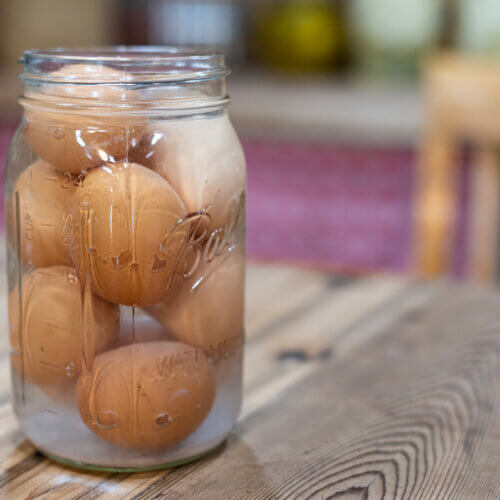
Water Glassing Eggs
Equipment
- Half-Gallon Mason Jar A half-gallon jar will hold 15-20 eggs. You can use a quart jar for less eggs, or a 5-gallon food-grade bucket if you have more.
Ingredients
- 2 Ounces Hydrated Lime If you can’t find hydrated lime locally, you can find pickling lime here.
- ½ Gallon Filtered Water
- 15 Fresh Eggs Make sure they are clean with the bloom still fully intact.
Instructions
- Start off with a clean vessel to store your eggs. Depending on how many eggs you want to preserve will determine the size of your container.
- Gently add your unwashed fresh eggs. (Remember to position them with the pointed side down (the smaller side of the egg).
- Measure out your water and lime. The ratio of water to lime is for every one quart of water you’ll use 1 ounce of lime. No matter what size container you’re using, this is the ratio to follow.
- Add the lime to your clean water and whisk until completely dissolved. The water will look milky white.
- Pour lime water over eggs until they're covered. You can always add more lime water and eggs later on if your vessel isn't full.
- When you’re ready to use your eggs, simply remove them, give them a good rinse and use as normal.
Video
Notes
- Use Clean, Unwashed Eggs – Dirty eggs can lead to bacterial contamination, which can cause the eggs to spoil, even when preserved. I recommend collecting fresh eggs from your chickens and wiping them clean with a dry cloth. Avoid washing the eggs with water as this can remove the protective layer that naturally covers the eggshell.
- Scale as Needed: Scale this recipe up for however many eggs you want to preserve. We usually multiply by eight and use a 5-gallon bucket for a large batch.
- Place Eggs in a Cool, Dark Place – Water-glassed eggs should be stored in a cool environment, away from sunlight and heat sources. A pantry or root cellar is ideal for storing your preserved eggs.
- Store Eggs Upright – When storing water-glassed eggs, keep them upright with the small end facing down. This helps prevent the air pocket from expanding and allows the egg to remain fresh for longer.
- Rotate Your Stock – To ensure the longevity of your water-glassed eggs, it’s essential to use them in a timely manner. Some people like to use multiple smaller jars for this reason, to be able to label the jars with the preservation date and use the oldest eggs first.
- Keep Your Eggs Covered - If your container doesn’t have a lid, add a layer of olive oil over the top of the water, then cover it with a towel to keep any bugs or insects out.


